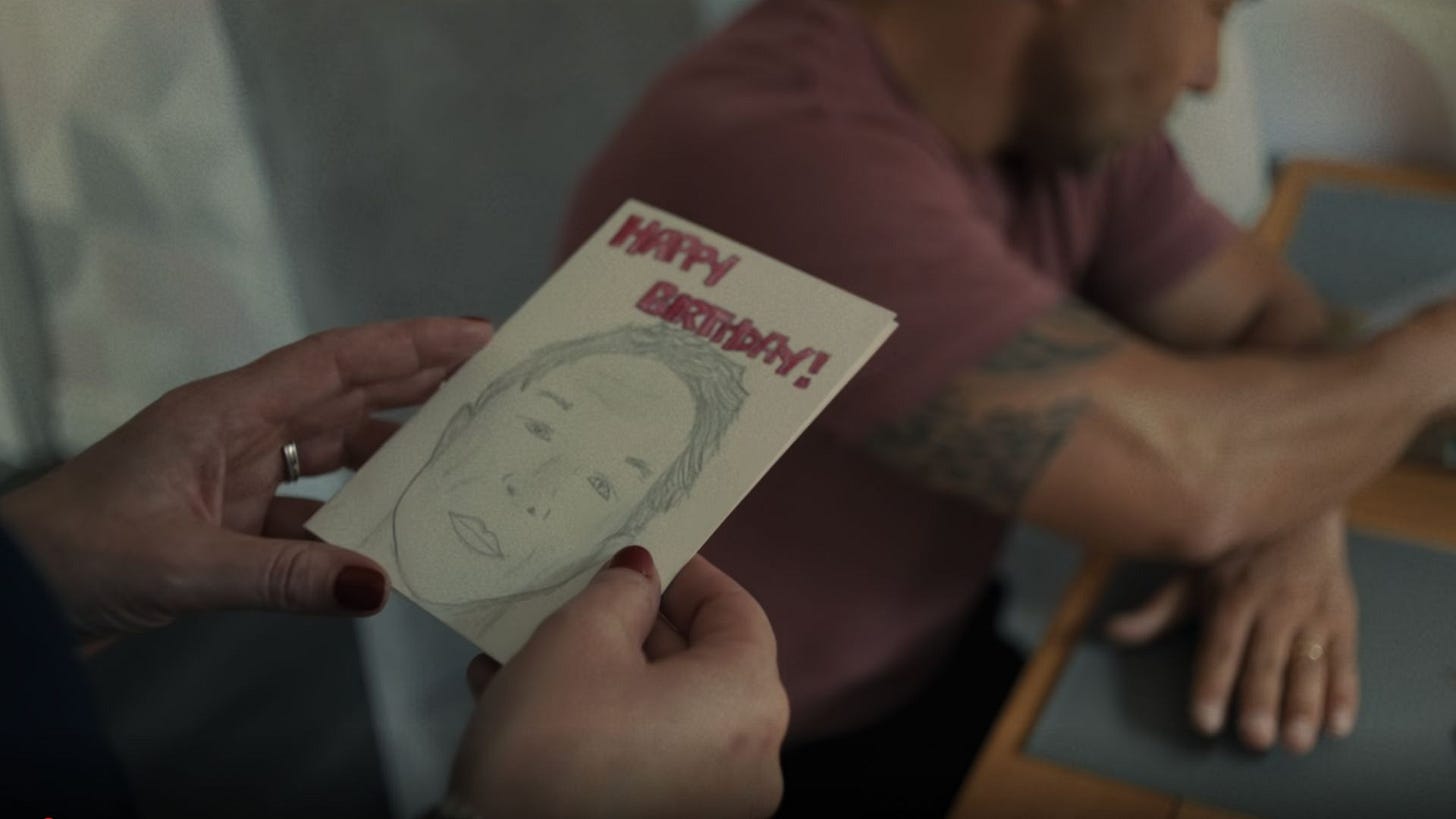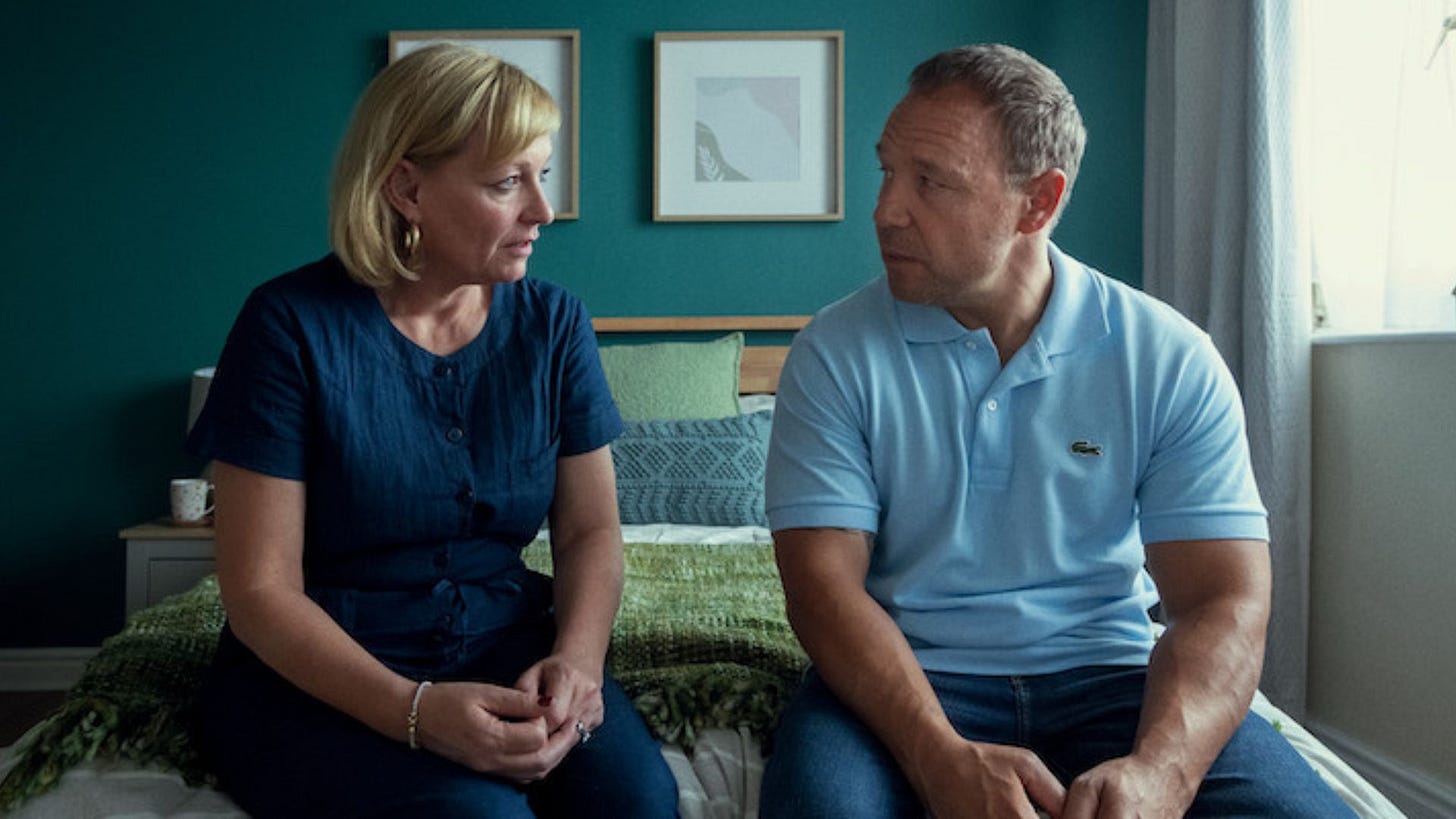
In Episode 1 of Netflix’s Adolescence (2025), DI Luke Bascombe (Ashley Walters) asks DS Misha Frank (Faye Marsay), “You worried about the dad?” He then explains, “I had this old case once, right? Young boy… It took us months before we realised what the dad was doing to him, so…”
This is a minor, speculative detail; perhaps it’s a satirical nudge, a play at the audience’s expectations of a usual whodunit thriller, which the show is not.
Adolescence tells the story of 13-year-old Jamie Miller (Owen Cooper), who is arrested for murdering a girl in his school. The reasons behind the murder force Jamie’s parents and the audience to confront their worst nightmares in the internet age.
Episode 3 of this four-part limited series — where Jamie has an interaction with Briony (Erin Doherty), the psychologist — is being applauded as being revealing, rattling, claustrophobic, brilliant, and more. And it is!
But, for me, the final episode is the best one.

Episode 4 shows something more fundamental: structures of patriarchy that are ingrained, internalised, inherited, and made infinitely worse by the internet. We are at home and in the van with Jamie’s father, Eddie Miller played by Stephen Graham — who co-wrote the show and possibly put or left that (foreshadowing?) piece of writing in Episode 1 — and, it makes for an uncomfortable watch, to say the least, though the creators have tried to neatly wrap it up in the “poetry of that final scene.”
There are, of course, many ‘hot takes’ on the show out there, but below I have collated some resources (a non-exhaustive list) that can help you delve deeper into the issues presented in the show.
LANGUAGE
A dictionary of the manosphere
— Robert Lawson (Article in The Conversation)
To many people, these words won’t mean much. To others, they are a core part of the vocabulary of the “manosphere” — a collection of websites, social media accounts and forums dedicated to men’s issues, from health and fitness to dating and men’s rights.
Many (though not all) manosphere communities have become spaces where explicit anti-women and anti-feminist sentiment abound.
HISTORY & RESEARCH
Misogynist Incels and Male Supremacism
— Megan Kelly, Alex DiBranco, and Dr. Julia R. DeCook (Study in New America)
In this policy brief, we explore the history of incel identity and the development of a new misogynist ideology since 2014. We explain core concepts related to dehumanization and entitlement, significant frameworks such as the “red pill” and “black pill,” and violence as central to the movement ideology… We provide short overviews of issues such as race in incel communities, identifying a range of concerns for policymakers and further research on how incels and misogyny fit into effective responses to violent extremism.
[…]
The “Red Pill,” a term that comes from the 1999 film The Matrix, has become a framework for individuals to describe their awakening to some previously hidden supposed reality. The major contemporary secular male supremacist movements… all use this terminology to describe their “realization” that men do not hold systemic power or privilege. Instead, they awaken to the “truth” that socially, economically, and sexually men are at the whims of women’s (and feminists’) power and desires… [T]o be blue-pilled is to accept the mainstream narrative and choose to live in ignorance of the truths of the world. Red Pillers see themselves as intellectually superior to “blue-pilled normies.”
Exiting the Manosphere
— Joshua Thorburn (Research paper published by Routledge)
This article explores the unique perspectives of individuals who are leaving, diverting from, or have left the manosphere. The manosphere is an umbrella-term used to refer to the array of online groups and figures who share overlapping anti-feminist sentiments and oftentimes violently misogynistic ideologies, including incels, pick-up artists (PUAs), men’s rights activists (MRAs) and others.
[…]
While it is promising that many users were engaging with r/ExRedPill and r/IncelExit to move away or divert from manosphere ideas, this did not necessarily mean that they did not continue to hold sexist or problematic views towards gender and dating…
ANALYSIS
“Feminism is a chore to us”: School in the era of Adolescence and Andrew Tate
— Amber O’Connor (Article in Cosmopolitan)
Rape jokes. Violent threats. Sharing of intimate photos. Misogyny is running rife in British schools, with social media, the ever-expanding manosphere and anti-feminist influencers having a knock-on effect — for students and educators alike, of all ages.
[…]
Before the conversation was trending, back in February 2024, we asked 12 students and teachers: what’s it really like going to school in the era of Andrew Tate? And how do we close the divide?
'Adolescence' Tells You Everything That's Gone Wrong in Raising Teen Boys Today
— Pratikshya Mishra (Article in The Quint)
In conversations with Jamie, his father (played by Graham) often comes up. The intent is clear — Briony wants to understand what a ‘man’ looks like for Jamie and the primary male role model in his life inevitably affects that understanding. Jamie speaks of his father’s attempts at making him more ‘sporty’ — one can’t shake off the feeling that Jamie, till the show’s end, holds his father’s opinion of him in high regard.
[…]
He speaks of his father’s anger — something his mother brings up later in a poignant conversation between husband and wife. He speaks of his father’s perceived disappointment.
In the last episode… His dad talks of his own father’s violence, and how he wished to break the cycle…
FEMINIST THEORY
The Right to Sex
— Amia Srinivasan (Non-fiction book)
One 23 May 2014, Elliot Rodger… became the world’s most famous incel. The term — short for ‘involuntary celibate’ — can, in theory, be applied to both men and women, but in practice it picks out not sexless men in general, but a certain kind of sexless man: the kind who is convinced he is owed sex, and is enraged by the women who deprive him of it.
[…]
What had started out as a support group for the lonely and sexually isolated had become a forum whose users not only raged against women… but also frequently advocated rape.
[…]
The question, then, is how to dwell in the ambivalent place where we acknowledge that no one is obliged to desire anyone else, that no one has a right to be desired, but also that who is desired and who isn’t is a political question [and not simply a matter of ‘personal preference’], a question often answered by more general patterns of domination and exclusion.
[…]
As Rebecca Solnit [author of Men Explain Things to Me] put it: ‘Sex is a commodity, accumulation of this commodity enhances a man’s status, and every man has a duty right to accumulation…’ Incels, Solnit says, ‘are furious at their own low status, but don’t question the system that allocates status and commodifies us all in ways that are painful and dehumanizing.’



That last book sounds so good. Adding it to my feminist criticism tbr (right next to Wordslut by Amanda Montell, which has been on there forever).